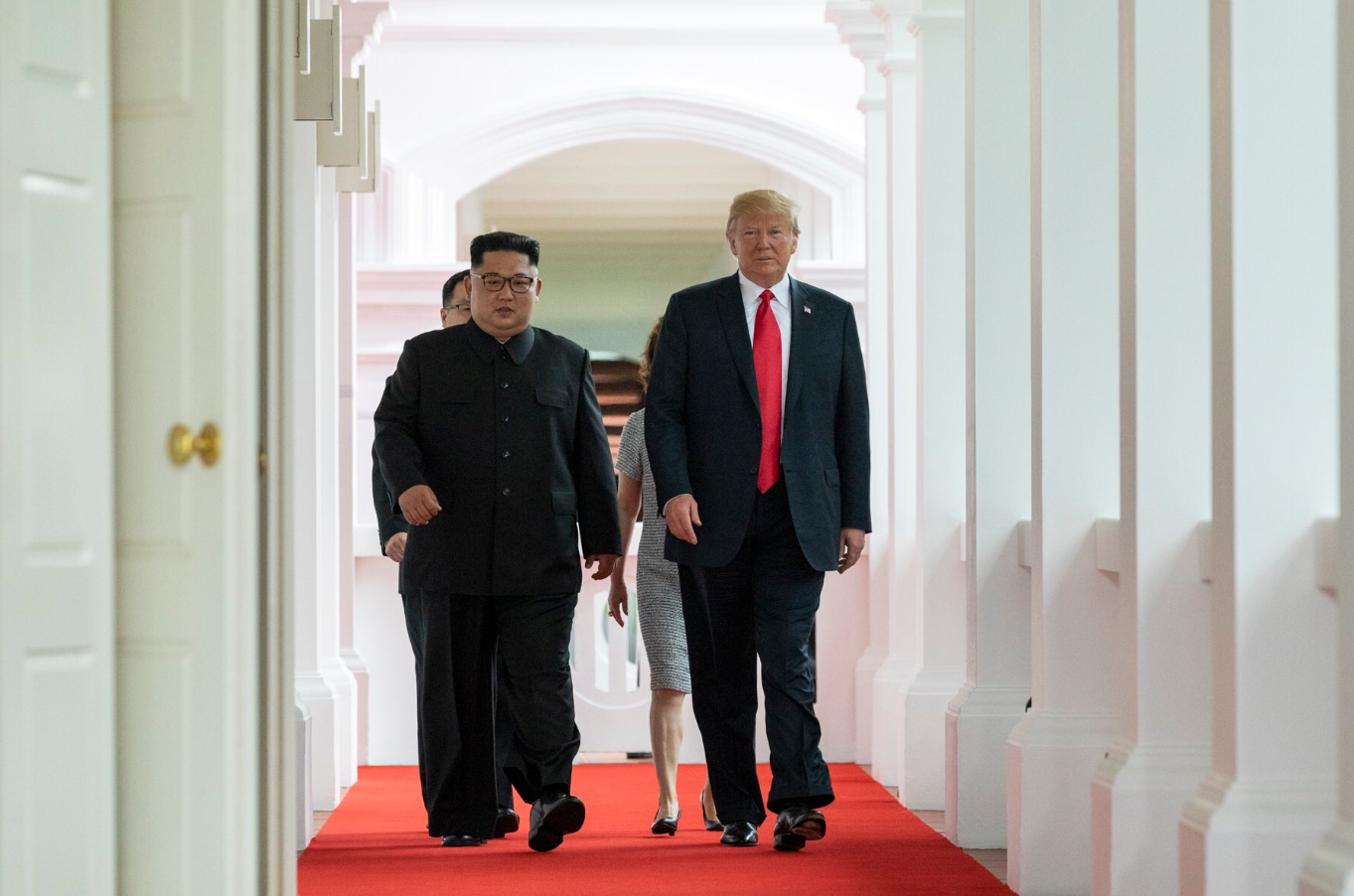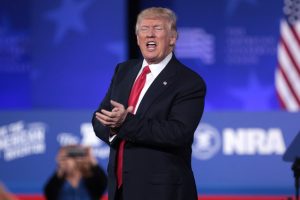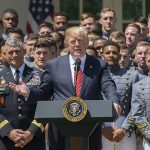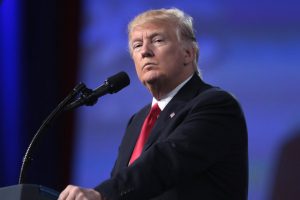by Suzy Kim
The June 12 summit between Donald Trump and Kim Jong Un was a historic moment—for the first time a sitting US president met with the leader of the Democratic People’s Republic of Korea (DPRK), or North Korea, since its founding in 1948. It was remarkable to see the Stars and Stripes standing next to the DPRK flag, and to see the two leaders shake hands in acknowledgement of each other as equals rather than as sworn enemies. Reactions in the United States to this history-in-the-making have ranged from cautious optimism to cynical skepticism. But what these apprehensions indicate is the crumbling of the so-called liberal order under the weight of its own contradictions.
Nicholas Kristof, regular columnist for the New York Times, represents the spectrum of reactions well, concluding that Trump was “outfoxed” and “hoodwinked” by Kim. Explaining why the summit made him uncomfortable despite his preference for diplomacy, Kristof wrote, “There was also something frankly weird about an American president savaging Canada’s prime minister one day and then embracing the leader of the most totalitarian country in the world.” In fact, there’s been an odd convergence of reactions that have united hardline Republican hawks like John Bolton with liberal Democrats like Chuck Schumer, who signed a letter warning Trump against any deal that did not include concessions from North Korea regarding its nuclear program. The letter insisted on “anywhere, anytime” inspections of all suspected sites of weapons of mass destruction, a probable nonstarter for a North Korea already wary of American threats and encroachment to its sovereignty.
For liberals siding with Bolton, their position has much to do with Roger Cohen’s argument that Trump is envious of Kim Jong Un and his absolute authority as dictator. Trump’s failings as a leader, they say, are similar to Neville Chamberlain’s—the British prime minister who tried to negotiate with Hitler to thwart World War II. In making this anachronistic comparison, they, like Cohen, believe that Trump has “saluted evil” and gone back on “more than seven decades of American stewardship of the world after the defeat of evil in 1945.”
For many, including Kori Schake of the International Institute for Strategic Studies, Trump’s rapprochement with North Korea signals “a turning point in world history: the end of the liberal order.” The liberal order, according to Schake, began at the conclusion of World War II when “America established a set of global norms that solidified its position atop a rules-based international system . . . promoting democracy, making enduring commitments to countries that share its values, protecting allies, advancing free trade and building institutions and patterns of behavior that legitimize American power by giving less powerful countries a say.” Even while acknowledging that “America doesn’t always get it right,” Schake claims that “the results speak for themselves” since it’s been over 70 years without great-power conflict.
Without any hint of irony or contradiction, she describes the numerous wars that have been waged by “democracies” since World War II as “enlarging the perimeter of security and prosperity, expanding and consolidating the liberal order.” Drawing on aggregate data in the abstract such as growth in the global economy, she neglects to define what “security and prosperity” mean or scrutinize on whom these are bestowed and at whose expense. Schake is oblivious to the harm done in the name of maintaining the liberal order, not only domestically in terms of racist, sexist, and classist exclusionary policies, but also internationally, least of which include the millions of lives lost in Asia, upward of 70 percent civilian deaths during the Korean War, not to mention the Vietnam War (and most recently the Iraq War).
Tellingly, the NBC television show Saturday Night Live ran a comedy sketch soon after Trump’s election in which a group of New Yorkers watching the election results respond in markedly contrasting ways. White liberals reacted with utter horror that the election was a “nightmare scenario” and “the most shameful thing America has ever done,” while African Americans were hardly surprised, shaking their heads at the utter lack of historical awareness of institutional racism, structural inequalities, and foreign interventionism. Asia Institute founder and director Emanuel Pastreich argues that US foreign policy has been unequivocally a form of gunboat diplomacy in which US military power is used to benefit multinational corporations. While previously there was at least an attempt to hide the government-corporation nexus, this collusion has now become blatant under Trump’s presidency. These are the foundations upon which the liberal order stands.
What the majority of liberals fail to acknowledge is just how similar Trump’s message of unilateralism and America First (what one White House official recently characterized as the “We’re America, Bitch” doctrine) is to the idea of American exceptionalism that has defined American identity since the end of World War II. The “indifference to democracy and human rights and cultivation of dictators” is not a “new world” Trump is creating, as Schake claims; it has undergirded the United States’ superpower status since 1945. While Schake raises alarm bells that “America will be seen as—and may even become—no different from Russia and China,” it is this very idea of American exceptionalism that has led to the Trump Doctrine.
While leadership does matter for both people in the United States and elsewhere, reactions to the summit have overwhelmingly concentrated on the individual personalities of Donald Trump and Kim Jong Un. This focus on the individual is one of the very tenets of liberalism, and in that sense, Trump—despite criticisms to the contrary—is the very product of the liberal order. By contrast, Kim Jong Un’s first words at the summit—that few in America noticed—focused on the collective past despite the infamous personality cult in North Korea. He said: “It was not an easy path to get here. The past held us back, and the mistaken biases and habits shielded our eyes and ears, but we have overcome all of these to come here” (emphasis mine). Kim Jong Un is having to end a war that was fought by his grandfather; it has taken three generations to get here.
Reactions to the summit in the United States are a kind of mourning at the disintegration of the Pax Americana and the pride of American exceptionalism with it. But this feeling of loss at the end of the liberal order should be put into proper perspective. The last 70 years hold a very different significance for Korea, which was divided into two separate states in 1948 precisely to uphold that liberal order. The Republic of Korea as the bulwark against the Communist North was founded exactly 70 years ago on August 15, 1948, followed by the DPRK the following month. It’s long overdue for Korea to be able to chart its own future. It’s time to bid farewell to the liberal order.
Suzy Kim is associate professor of Korean history at Rutgers University, and author of Everyday Life in the North Korean Revolution, 1945–1950 (Cornell Univ. Press, 2013). She was guest editor of the special issue “(De)Memorializing the Korean War” in Cross-Currents: East Asian History & Culture Review (2015). This article originally appeared on Perspectives Daily, the American Historical Association’s online newsmagazine.






….it is long overdue for Korea to chart it’s own course…. with the end of the liberal order it will be the DPRK that charts Korean course.
‘Liberal Order’?! Just a nice word for the mess of a period of uninterrupted war and chains of anti-democratic coup d’etats in the world after WWII all designed and carried out by club of so-called liberal states?! This is what was carried out under the name of liberalism. The only accomplishment of this period was the free trade initiative started to maximize the profit of so-called liberal club but ended disastrous for them when caused them to loose the grip on worldwide economy.
Please mention it as “post-colonialism era” instead. The period that US started to gather all ex-collonialists under the liberalism flag to keep their one-sided draw of world resources alive under a attractive slogan. The deeds speak better!